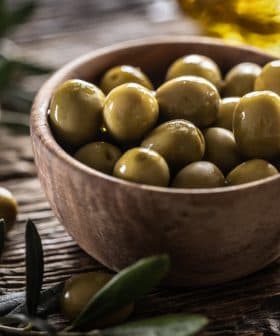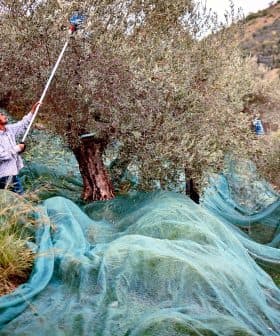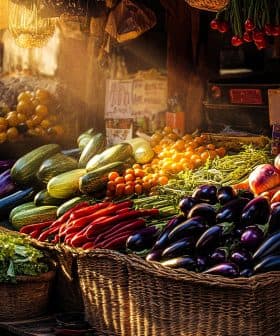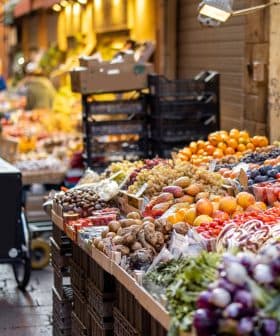Nutri-Score Gains Traction Despite Opposition From Italian Farmers
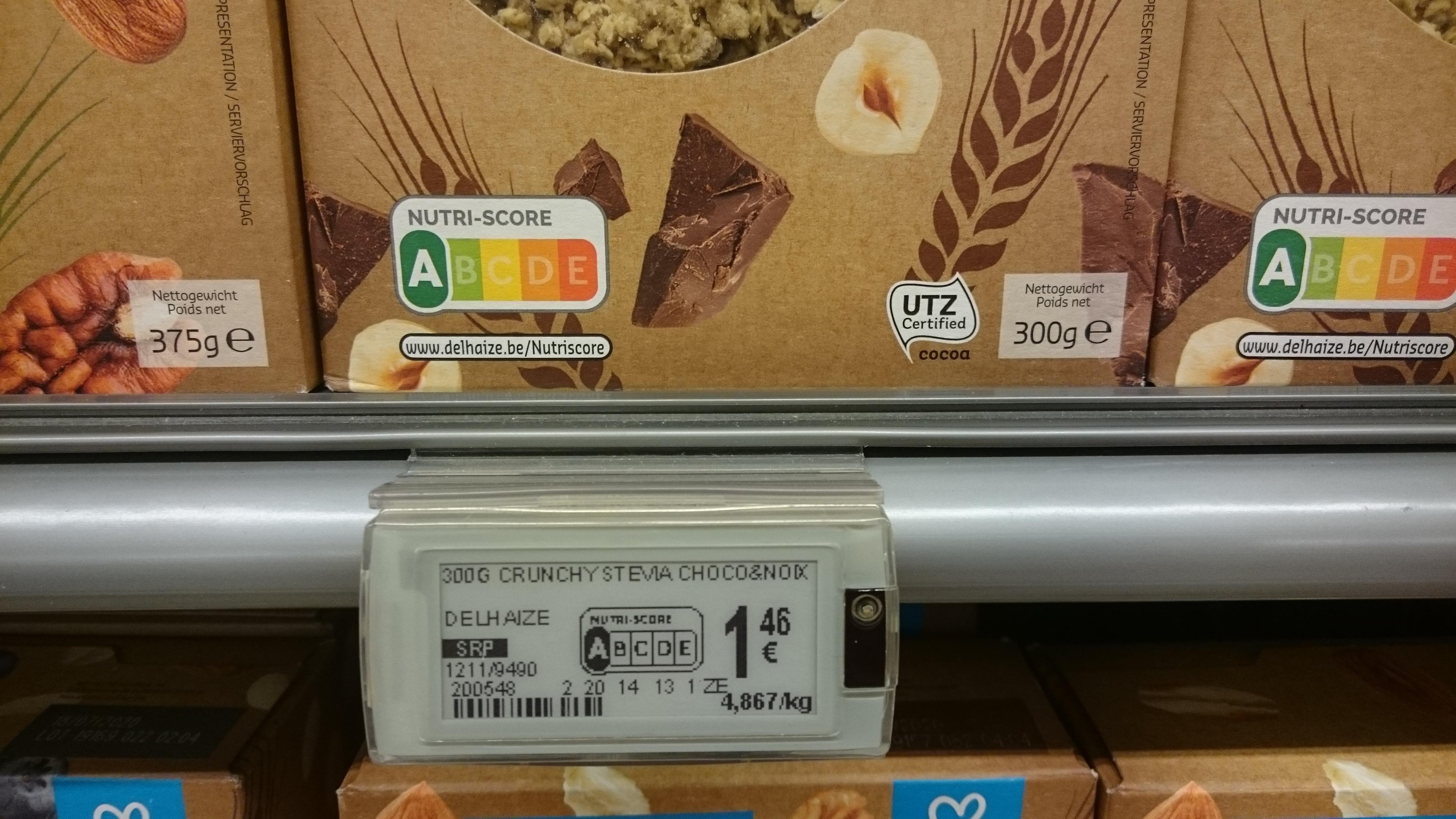
Italian farmers and olive oil producers are resisting the implementation of the Nutri-score food rating system in Europe, despite its growing popularity in other countries. Developed in 2017, Nutri-score grades food items from A to E based on their nutrient profiles, with extra virgin olive oil receiving a C rating, which has sparked criticism from Italian agricultural associations.
As the French food rating system Nutri-score becomes increasingly ubiquitous in Europe, Italian farmers and olive oil producers continue to oppose its implementation.
The system, which was developed in 2017 and has since been adopted in seven other European countries, gives food items a grade from A to E, based on their nutrient profiles.
The public health recommendations do not suggest consuming olive oil without limits, but they encourage consumers to favor it over other vegetable oils and especially over animal fats.
“The goal is to enable consumers to compare the nutritional quality of foods,” Serge Hercberg, a professor of nutrition at the University of Paris and head of the team that devised Nutri-score, told Olive Oil Times.
“Nutri-score uses the computation of a nutrient profiling system taking into account nutrient content per 100 grams for food and beverages,” he added. “It allocates bad points according to the content of critical concern, unfavorable nutrients: sugar, saturated fatty acids and sodium. Good points are allocated for the content of fruits, vegetables and nuts, fibers, proteins and olive, rapeseed and nuts oils.”
See Also:Germany Introduces Nutri-ScoreNutri-score grades extra virgin olive oil with a C, which has drawn criticism from Coldiretti, the major Italian agricultural association. However, Hercberg said the rating should not come as a surprise.
“[The C for olive oil is] the best score possible for added fats and even for vegetable oils,” he said. “The public health recommendations do not suggest consuming olive oil without limits, but they encourage consumers to favor it over other vegetable oils and especially over animal fats.”
As more countries opt to implement the Nutri-score scheme, private companies have followed suit.
Food giant Nestlé has said they will adopt Nutri-score on their food packages throughout southern Europe.
“With Spain and Portugal, we will now have 7,500 Nestlé products featuring Nutri-score across the continent,” Marco Settembri, Nestlé CEO for Europe, the Middle East and North Africa, said. “Further studies have confirmed what we believe: Nutri-score works with consumers in Europe and has the potential to become the European Union-wide system.”
Coldiretti responded that Nestlé’s decision to further implement Nutri-score on its products is “untimely and wrong.”
[Nutri-score] is misleading, discriminatory and incomplete. Its paradox is to penalize healthy and natural food while favoring artificial products whose true contents are in some cases unknown.
Ettore Prandini, the association’s president, said the decision “seeks to affect the ongoing debate in the E.U.” about the eventual introduction of a common food labeling system designed to combat obesity and promote better eating habits.
“[Nutri-score] is misleading, discriminatory and incomplete,” he said. “Its paradox is to penalize healthy and natural food while favoring artificial products whose true contents are in some cases unknown.”
“We risk the promotion of junk food with sweeteners instead of sugar in it, while blocking life-saving food such as the extra virgin olive oil, considered the signature product of the Mediterranean diet,” he added. “Nutritional balance is a result of differentiated daily food intake, certainly not of a specific product by itself.”
However, Hercberg has heard these arguments before and said special interest groups would oppose any type of system aimed at grading foods based on their nutritional content.
“Six years ago, when… I proposed the idea of a summarized, graded five-colors front-of-pack label to inform consumers about the nutritional quality of foods, we had an immediate general outcry from economic operators,” he said. “Almost everything was done by powerful lobbies to prevent the implementation of this public health measure.”
Hercberg said that Nutri-score is based on a solid foundation of scientific research.
“More than 40 studies published in international peer-reviewed journals have validated the algorithm underlying its computation,” he said.
The Parisian researcher added that the system is meant as a comparison of foods that are in the same category (i.e. for extra virgin olive oil and butter). He argued it would help consumers compare similar offerings – such as two options from different brands or two types of foods that are prepared in similar manners – to decide what was best for them.
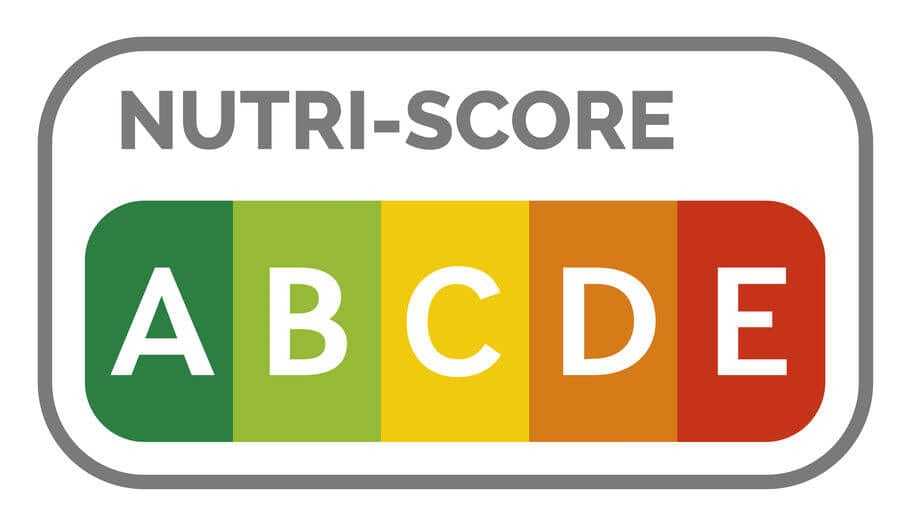
Hercberg is not alone in his advocacy for the system either.
Citing the support that Nutri-score has gathered within the World Health Organization since its introduction, the Spanish Authority on Food Safety and Nutrition said it will adopt Nutri-score as part of a multifaceted strategy to help consumers adopt healthier eating habits.
France also has adopted the system with enthusiasm and may incorporate aspects of it into tax law. A few weeks ago, the Senate advanced a legislative proposal that, if adopted, would require products labelled D or E to pay a special tax.
In 2019, German authorities also scrapped plans to legislate their own food labeling system in favor of implementing Nutri-score.
The E.U. itself has hinted that the debate could soon be over.
During the European Parliament’s last meeting of the commission on environment, public health and food safety, Alexandra Nikolakopoulou, a member of the food safety office of the European Commission, said the E.U. must promote a “sustainable food system.”
He added that this would require the adoption of the labelling system with the goal to make its introduction mandatory for the member states within the next two years.
While the Commission has not yet officially proposed such a controversial measure, the idea was unsurprisingly met with skepticism in Italy.
“That is absurd,” Prandini told the Italian newspaper Il Giornale. “The idea is to penalize Italy, which along with Japan is one of the countries in the world with the highest life expectancy, while rewarding the model of countries where obesity is widespread.”
Prandini also said the introduction of a labelling system in the United Kingdom meant a loss of at least 30 percent for the Italian olive oil market there.
“Lost in favor of oils that are in no way comparable to extra virgin olive oil,” he said. (Rapeseed oil and walnut oil are also graded with a C by Nutri-score, while soya, sunflower and corn oils are all graded as a D, with butter receiving an E.)
Italy has asked its European partners supporting Nutri-score at least not to adopt it for products with a Protected Designation of Origin, specialties that are an essential part of a high-quality and traditional diet.
The Italian government is also working to promote an alternative labeling system it has dubbed, Nutrinform Battery, a “battery indicator” that alerts the consumer about the nutritional value of the packaged food, focusing on calories, fats, sugar and salt for single serving.
Italian government officials, including the Minister of Agriculture, Teresa Bellanova, have also emphasized that any type of labeling program must not be unilaterally imposed on member states.
However, Italian producers and government officials are already swimming against a strong current. Hercbeg said that Nutri-score has proven to be effective and popular in countries where it had already been adopted.
“We have results of several studies performed in real conditions showing that the Nutri-score label led to a significant improvement of the overall nutritional quality of food purchases,” Hercberg said.
“On the other hand, a study on acceptance by consumers has shown that 91 percent of French people support the Nutri-score logo present on food packages; 91 percent consider it easy to understand; 70 percent have a better image of the brands displaying Nutri-score and 87 percent believe that Nutri-score should be mandatory,” he added.


